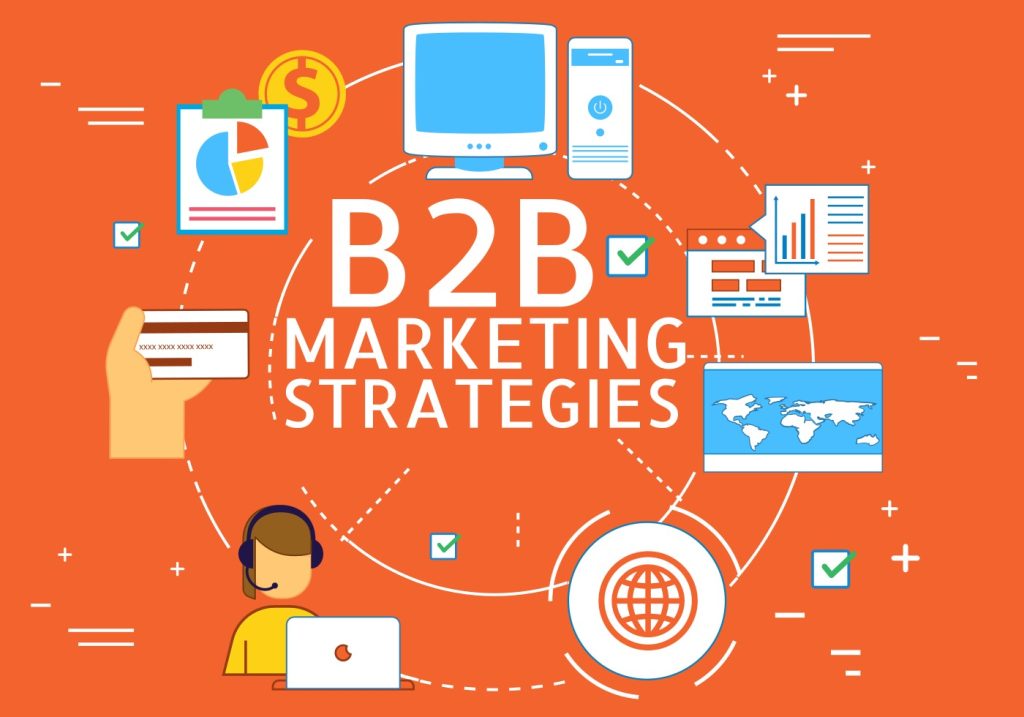B2B Marketing Strategies for the Chemical Industry: Tips and Tricks
The chemical industry is a challenging one to be in. The highly competitive B2B market for chemical industry makes it difficult for manufacturers to stay ahead of the curve with their marketing strategies. Here are some tips that will help you reach out to other companies in this field.
Make your website a friendly place for chemistry enthusiasts.
Your website should be a friendly place for chemistry enthusiasts. Make sure your site is mobile-friendly, and use it to help people find answers to their questions. Videos are an excellent tool if you want people to understand what you do and how you can help them. Posting on social media will also help you connect with potential customers and grow your audience.
Help chemical companies achieve their goals.
To help chemical companies achieve their goals, you need to understand their goals and help them achieve them. In addition, you must be a strategic partner, not just a vendor. Your role is not just to sell products or services–it’s also about helping your customers get the most out of their marketing budgets by showing them how to get more from their marketing budget.
You can do this by understanding what works well for other companies in your industry or market segment and using that knowledge, as well as your own expertise and research skills, when developing ideas for specific campaigns or projects on behalf of clients who may have limited experience with marketing strategies themselves but still want results.
Collect and analyze data to get a better idea of what their needs are.
Once you have a list of potential customers, it’s time to start analyzing the data. You need to know why they are interested in your product and their needs. This will help you understand what kind of messaging they respond to and how best to communicate with them.
You can use surveys or polls on social media platforms such as Twitter or Facebook, but there are also other ways of collecting information about customer behavior:
- Observe how people interact with your brand online (for example, by checking out their social media profiles).
- Ask customers directly through email campaigns or phone calls if they would like more information about new products or services from you.
Use content marketing with video to attract leads.
A video is a powerful tool for marketing your company and products. Videos can be used in many different ways, including:
- Showing off your product — A video will allow you to highlight the benefits of your product without having to write out a full description or explain it in detail.
- Explaining how something works — If there’s something unique about your product, consider creating a video explaining this feature and its benefits for customers. This could help increase conversions by making it easier for potential customers who aren’t familiar with the product or industry (and thus don’t know what features are essential) to understand why they should buy from you instead of another company offering similar products at lower prices (or vice versa).
- How something is made — Another great use of video is showing people how things are made. You can share this information through YouTube videos or even live broadcasting on Facebook Live, where viewers get up-close looks at every step along production lines so they come away feeling confident knowing exactly what goes into making each batch before purchasing anything online through Amazon Prime Pantry service delivery options available today.
Reach out to influencers in the industry to help promote your brand.
- You can find influencers by searching for them on Twitter and other social media platforms or using tools like BuzzSumo or Followerwonk (which we’ll discuss later).
- Determine what interests these people have, and align yourself with those interests. For example: if one of your target buyers is a food blogger focusing on making healthy recipes at home, you could partner with them by sponsoring their blog content and promoting it through your channels. Or there’s an industry event that attracts many chemical engineers who could benefit from learning more about how you solve problems–in this case, consider sending out emails inviting attendees to visit your booth at the conference.
Create a blog and encourage others to contribute too.
A blog is a great way to share your expertise with the world and can also be used as an effective marketing tool for your brand. If you need help figuring out where to start, check out this HubSpot guide on creating an influential blog that attracts visitors and converts them into leads or customers.
You can even use social media platforms like Facebook or Twitter to extend your content strategy by sharing links from your blog posts.
- Encourage comments on each post: Getting people involved in the conversation around your content will help boost engagement with new readers who might not otherwise find their way back again–and turn some of these new readers into paying customers.
Post engaging graphics on social media channels like Pinterest, Instagram, and LinkedIn.
- Use images to tell a story. If you have a blog, post pictures of your products in action. For example, you could post a picture of a customer using one of your products at their business or home. This will help customers understand how the product works and can be used in real-life situations.
- Use images to convey your brand message. Ensure that every image is consistent with the message you want to portray about your company and its products by including consistent branding elements on all photos (e.g., logo placement or colors). You can also use this opportunity as an opportunity for humor. For example, if there is an amusing situation during production, take photos and share them on social media channels like Instagram or Twitter – everyone loves a good laugh.
- Show off what makes us unique: our culture. Using photographs is one way we do this here at ChemicalMarketingNews; another way would be through videos highlighting some interesting facts about each team member and their favorite hobbies outside work hours (people must know who they’re working alongside, after all).
You can reach out to other chemical companies by using social media, blogging, and targeted search engine ads.
You can reach out to other chemical companies by using social media, blogging, and targeted search engine ads. Social media is a great way to reach out to other chemical companies because it allows you to engage with influencers in your industry. You can also use blogging as an effective B2B marketing strategy that helps you to share content with your target audience through organic traffic or paid advertising on Google AdWords.
To summarize
We’ve covered a lot of ground in this article, but we hope it clarifies how much potential it is for you to reach out to other chemical companies with your marketing efforts. If you’re looking for ways to improve your B2B marketing strategy or just get started with new ideas, look no further than these tips.







